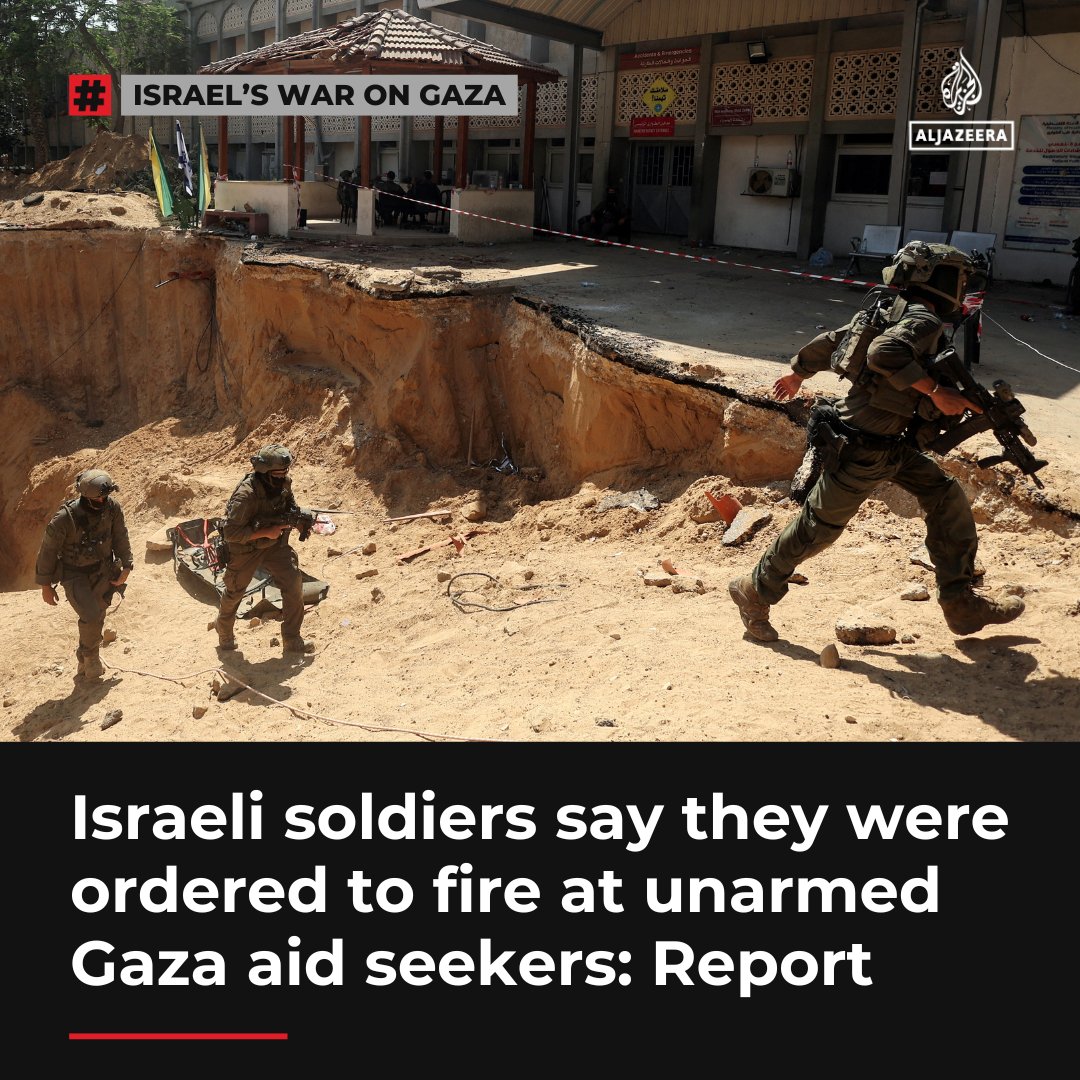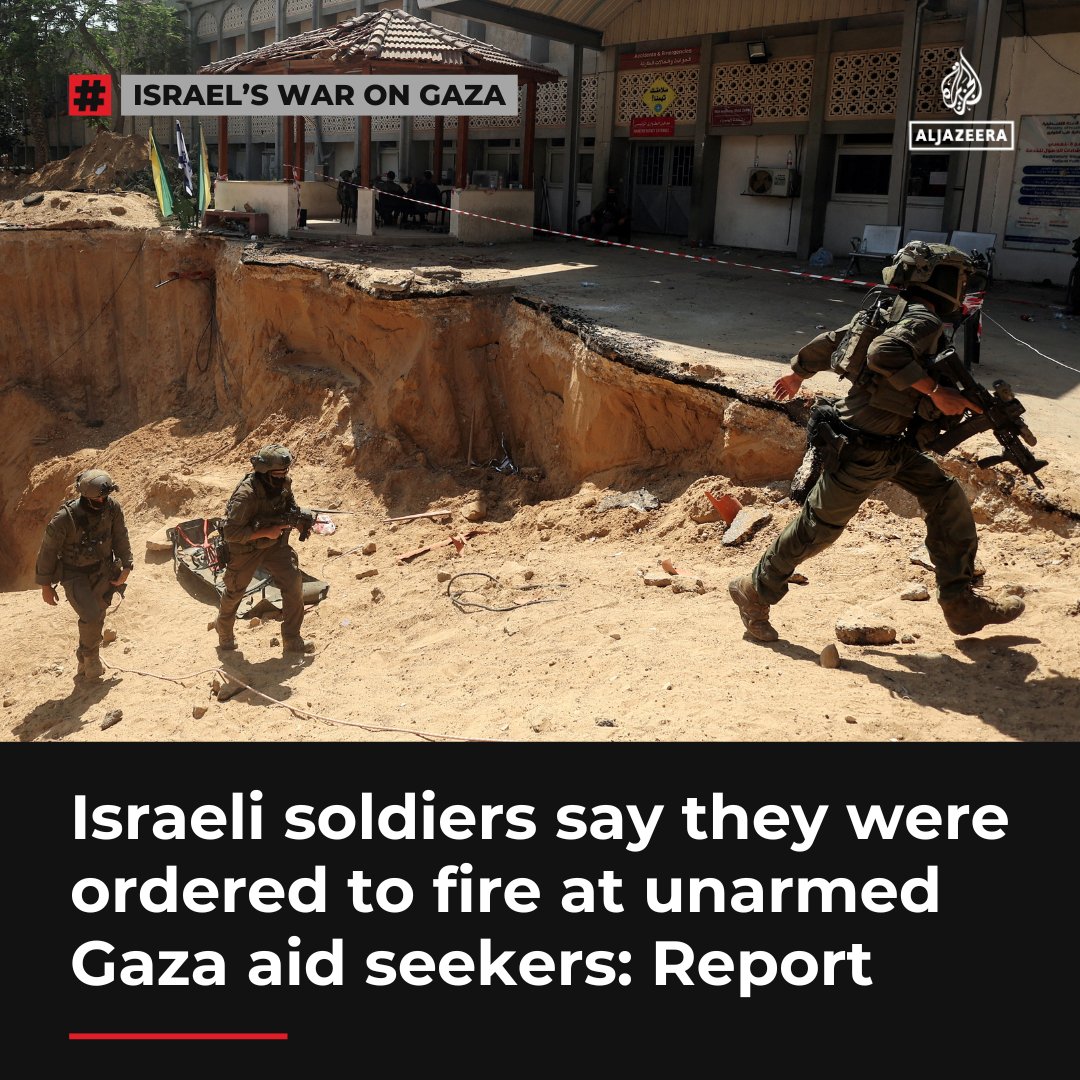Israeli Forces Ordered to Shoot Unarmed Palestinians in Gaza
Unarmed Palestinians Targeted in Gaza: A Disturbing Revelation
Recent reports have surfaced from Israeli officers and soldiers who disclosed alarming instructions regarding the treatment of unarmed Palestinians in Gaza. According to an article published in Haaretz, these military personnel were directed to shoot at civilians seeking aid at designated distribution zones, even when these crowds posed no immediate threat. This revelation has sparked outrage and raised serious ethical questions about the conduct of military operations in densely populated civilian areas.
The Context of the Conflict
The Israeli-Palestinian conflict has been a long-standing and deeply complex issue, characterized by cycles of violence and attempts at peace. In times of heightened tensions, like those experienced in Gaza, the humanitarian situation often deteriorates, leading to severe repercussions for the civilian population. The recent directives reported by Haaretz indicate a troubling escalation in military engagement, particularly concerning vulnerable groups seeking assistance.
Eyewitness Accounts and Military Testimonies
The Haaretz article included testimonies from Israeli military personnel, shedding light on the grim reality faced by those attempting to access essential supplies amidst conflict. Soldiers reported feeling conflicted about their orders, recognizing the humanity of those they were instructed to target. The phrase "It’s a killing field" encapsulates the harrowing atmosphere in Gaza, where unarmed civilians are caught in the crossfire of military operations.
The Humanitarian Crisis in Gaza
Gaza has been grappling with a profound humanitarian crisis, exacerbated by ongoing military actions and blockades. Basic necessities such as food, water, and medical supplies are scarce, pushing many residents to gather at aid distribution points. The reported military strategy of shooting at these unarmed individuals raises ethical concerns regarding the protection of civilians during wartime, a principle enshrined in international law.
- YOU MAY ALSO LIKE TO WATCH THIS TRENDING STORY ON YOUTUBE. Waverly Hills Hospital's Horror Story: The Most Haunted Room 502
International Reaction and Human Rights Implications
The international community has responded with condemnation to the reported actions of the Israeli military. Human rights organizations have called for independent investigations into these allegations, emphasizing the need for accountability in instances where military conduct leads to civilian casualties. The United Nations and various humanitarian organizations have consistently advocated for the protection of civilians in conflict zones, arguing that such actions violate international humanitarian law.
The Role of Media in Conflict Reporting
Media coverage plays an essential role in shaping public perception of conflicts. Outlets like Al Jazeera and Haaretz have been pivotal in bringing attention to the plight of civilians in Gaza, highlighting the consequences of military operations on non-combatants. The dissemination of firsthand accounts from military personnel adds a crucial layer of complexity to the narrative, prompting discussions about the moral responsibilities of soldiers and the implications of their orders.
The Importance of Protecting Civilians
The targeting of unarmed civilians raises fundamental questions about the conduct of warfare and the principles governing military engagement. International humanitarian law stipulates that parties in conflict must distinguish between combatants and civilians, ensuring that the latter are afforded protection. The reported instructions to shoot at unarmed Palestinians seeking aid not only contravene these principles but also underscore the urgent need for reforms in military protocols to prioritize civilian safety.
Calls for Accountability and Change
As the situation in Gaza continues to unfold, there are growing demands for accountability from both local and international stakeholders. Advocacy groups are pushing for investigations into the military’s conduct, aiming to ensure that those responsible for ordering violence against unarmed civilians face consequences. Furthermore, there is a call for the Israeli government to re-evaluate its military strategies and prioritize the protection of civilians in conflict zones.
The Path Forward: Seeking Peace and Justice
Addressing the humanitarian crisis in Gaza requires a multi-faceted approach that involves diplomatic efforts, humanitarian assistance, and a commitment to upholding human rights. The international community must play a proactive role in facilitating dialogue between conflicting parties to seek a lasting resolution to the Israeli-Palestinian conflict.
Conclusion: A Call for Reflection and Action
The revelations regarding the treatment of unarmed Palestinians seeking aid in Gaza serve as a somber reminder of the human cost of conflict. As the world watches, it is imperative that we advocate for the protection of civilians, uphold humanitarian principles, and work towards justice and peace in the region. Only through collective action and commitment to human rights can we hope to alleviate the suffering of those caught in the crossfire and pave the way for a more just and peaceful future.
In summary, the situation in Gaza highlights the urgent need for accountability, humanitarian aid, and a renewed commitment to protecting civilians in conflict. As we seek to understand the complexities of the Israeli-Palestinian conflict, let us remember the humanity of those affected and advocate for a resolution that respects their rights and dignity.

“It’s a killing field.”
Israeli officers and soldiers have told Israel’s Haaretz newspaper that they were instructed to shoot at unarmed Palestinians seeking aid at designated distribution zones in Gaza, despite crowds posing no threat.
LIVE updates: https://t.co/HzLIo9i1aq pic.twitter.com/9LSzSdDB4V
— Al Jazeera English (@AJEnglish) June 27, 2025
It’s a Killing Field: The Disturbing Reality in Gaza
In recent reports from Israel’s Haaretz newspaper, chilling accounts from Israeli officers and soldiers have emerged, revealing instructions to shoot at unarmed Palestinians. This shocking directive was reportedly given in the context of aid distribution zones in Gaza, where vulnerable individuals were simply seeking assistance. As these testimonies unfold, the phrase “It’s a killing field” resonates strongly, highlighting the dire situation faced by civilians in conflict zones.
The Context of the Conflict
The ongoing conflict in the region has deep historical roots, with tensions between Israelis and Palestinians escalating over decades. The situation in Gaza, in particular, remains exceedingly complex, marked by blockades, military actions, and humanitarian crises. With a population under severe duress, many Palestinians find themselves in desperate need of aid. Unfortunately, these humanitarian efforts, aimed at alleviating suffering, have turned into scenes of violence and tragedy.
According to reports, the designated distribution zones, meant to be safe spaces for civilians, have instead become perilous areas where lives are at risk. This is where the testimonies from Israeli soldiers come into play, as they recount being ordered to fire upon unarmed groups, often comprising families and individuals simply trying to access essential supplies. When the very act of seeking aid becomes a life-threatening endeavor, it raises serious ethical questions about military conduct and the treatment of civilians in conflict.
Understanding the Human Impact
Imagine being in a situation where you are desperately trying to secure food and medical supplies for your family, only to be met with gunfire. This is the grim reality for many in Gaza. The accounts from soldiers indicate a severe disconnect between military objectives and the humanitarian needs of the population. The phrase “It’s a killing field” encapsulates the tragic irony of a space meant for aid becoming a site of violence.
Human rights organizations have long condemned the use of excessive force against civilians. The implications of such military orders are profound, not only for those directly affected but also for the broader humanitarian landscape. The fear instilled in communities can deter individuals from seeking help, exacerbating an already critical situation. With each passing day, the cycle of violence perpetuates itself, leaving families in a constant state of anxiety and despair.
The Role of Media and Reporting
The role of media in uncovering these truths cannot be understated. Outlets like Al Jazeera have been pivotal in bringing these stories to light. Their reporting offers a glimpse into the lived experiences of those in conflict zones, allowing the world to witness the harsh realities faced by innocent civilians. It’s crucial for media to continue highlighting these issues, as they play a significant role in shaping public perception and policy discussions surrounding the conflict.
When the narrative shifts from abstract geopolitical discussions to personal stories of loss and survival, it becomes harder for the international community to ignore the human cost of military actions. The phrase “It’s a killing field” serves as a stark reminder of the consequences of war, emphasizing the need for accountability and a renewed focus on humanitarian efforts.
Calls for Accountability and Change
As these reports surface, the call for accountability grows louder. Human rights advocates are urging for investigations into the conduct of Israeli forces, demanding that those responsible for such directives be held accountable for their actions. The international community cannot turn a blind eye to incidents where civilians are targeted, especially in scenarios where they are merely seeking assistance.
Moreover, there’s an urgent need for a reevaluation of military strategies that compromise civilian safety. The protection of human life must take precedence over military objectives. It’s essential that policies reflect a commitment to safeguarding the most vulnerable, particularly in conflict zones.
The Path Forward: A Humanitarian Focus
Moving forward, it’s imperative that humanitarian considerations take center stage in discussions around the conflict. The suffering of civilians in Gaza should be at the forefront of any peace negotiations or military strategies. By prioritizing human rights and humanitarian aid, there’s a potential to break the cycle of violence and pave the way for a more peaceful existence.
Organizations working on the ground in Gaza need continued support and resources to effectively deliver aid without the looming threat of violence. The global community must stand in solidarity with those affected, advocating for their rights and wellbeing. It’s only through a collective effort that we can hope to change the narrative from one of violence to one of peace.
Conclusion
The situation in Gaza is stark and urgent. The reports of Israeli officers indicating a willingness to fire upon unarmed civilians seeking aid are deeply troubling. It’s clear that the phrase “It’s a killing field” is not just a statement but a call to action. We must confront the realities of conflict and advocate for a future where humanitarian needs are met with compassion rather than violence. The voices of those in Gaza deserve to be heard, and it’s our responsibility to ensure that their stories are not forgotten.

